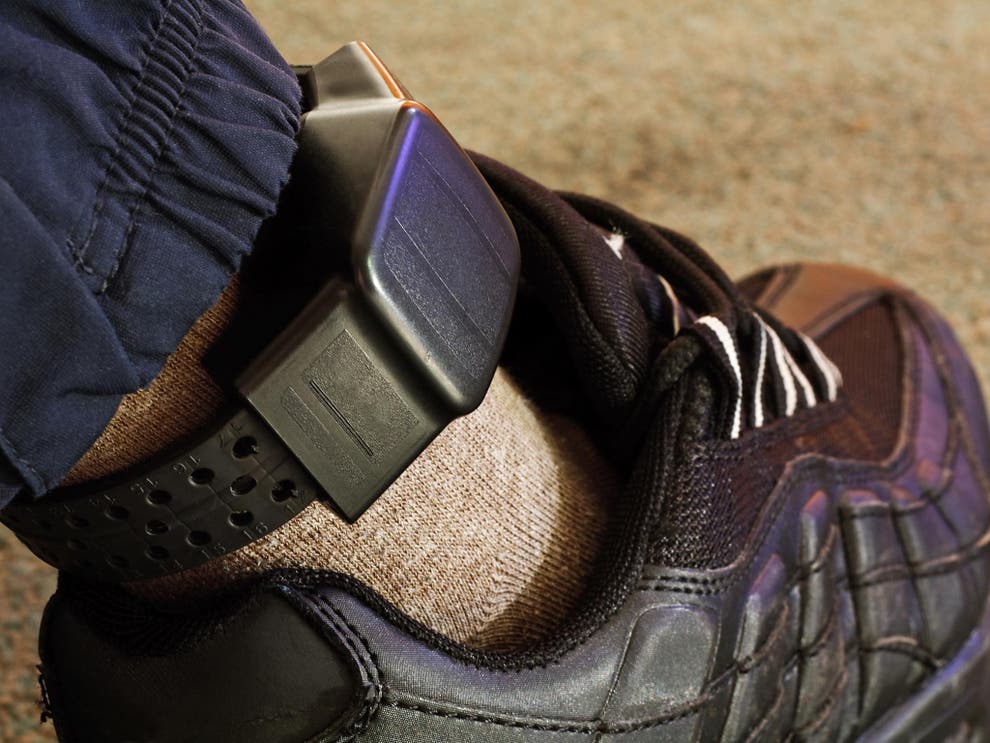People who commit alcohol-driven crime to be fitted with ‘sobriety tags’
Plans to fit offenders with monitoring device branded ‘short-term solution’ that will ‘stigmatise’ people without addressing root cause of problems

Your support helps us to tell the story
From reproductive rights to climate change to Big Tech, The Independent is on the ground when the story is developing. Whether it's investigating the financials of Elon Musk's pro-Trump PAC or producing our latest documentary, 'The A Word', which shines a light on the American women fighting for reproductive rights, we know how important it is to parse out the facts from the messaging.
At such a critical moment in US history, we need reporters on the ground. Your donation allows us to keep sending journalists to speak to both sides of the story.
The Independent is trusted by Americans across the entire political spectrum. And unlike many other quality news outlets, we choose not to lock Americans out of our reporting and analysis with paywalls. We believe quality journalism should be available to everyone, paid for by those who can afford it.
Your support makes all the difference.People in England who commit alcohol-driven offences are to be fitted with “sobriety tags” to monitor their sweat under new government plans.
The Ministry of Justice (MoJ) has said that individuals could be ordered to wear a tag which takes a sample of their sweat every 30 minutes and alerts the probation service if alcohol is detected, which could lead to further court sentences or fines.
The launch of the same policy in Wales showed that offenders stayed sober for more than 95 per cent of days monitored, ministers said.
But campaigners warn that the measure is a “short-term solution to a long-term problem” and will further “stigmatise” people with alcohol issues.
Nuno Albuquerque, from UK Addiction Treatment Group, said: “What they're doing in effect is just slapping a sticking plaster over the top of a person's open wound. Tagging them simply stigmatises them for drinking alcohol and doesn't address the root cause of the problem.”
Read more:
The government said the tags would not be used on adults who are alcohol-dependent or suffering from certain medical conditions, and that they would not be intended as a treatment for alcoholism.
The tags are able to distinguish between drinks and other types of alcohol – such as hand sanitiser or perfume – and are able to tell if someone tries to block contact between the tag and their skin, the MoJ said.
Warning that the tags would not help to address alcohol addiction, Mr Albuquerque said: “We'd welcome information as to how these people are supported in order to prevent them from drinking once the tag comes off.
“Collaborative support between probation teams and treatment providers needs to be in place so that when the tag comes off, the person won't want to drink, rather than being forced not to drink.”
Kit Malthouse, the minister for crime and policing, said: “These tags have already brought enormous benefit to Wales since they were introduced in October, with one offender I met saying it not only changed his ways but also saved his life.
“This smart and powerful new tool is helping the fight against alcohol-fuelled violence, which ruins too many lives and families and creates mayhem in our town centres.”
Alcohol plays a part in 39 per cent of violent crime, with the social and economic cost of drink-related harm estimated at around £21.5bn per year.
The MoJ said the sobriety tags would be backed up by targeted professional support, signposting offenders to the help they need and helping to prevent future violent behaviour.
Join our commenting forum
Join thought-provoking conversations, follow other Independent readers and see their replies
0Comments